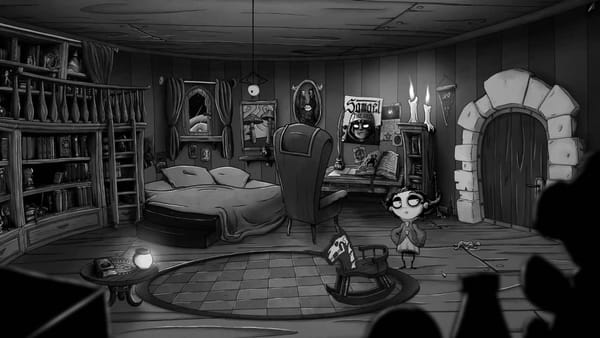The follow-up to Agatha Christie – Hercule Poirot: The First Cases, Agatha Christie – Hercule Poirot: The London Case is an original story by Blazing Griffin, featuring Belgium’s notorious detective.
A point and click game of deduction and exploration, the journey, unsurprisingly, takes Poirot to London while transporting an art piece that soon goes missing. Enlisting the help of a new contact, Arthur Hastings, the pair travel through London, sniffing out clues and questioning suspects.
This Agatha Christie – Hercule Poirot: The London Case review is based on the PS5 version. Despite having some nice backgrounds, it’s hardly next-gen, but it plays well on the console. As we all know, these games are best suited for a mouse, but a controller works absolutely fine.

Agatha Christie – Hercule Poirot: The London Case Review (PS5)
Agatha Christie – Hercule Poirot: The London Case begins with a prologue. Consider it a tutorial, if you will, but more so, an introduction to the style of play and what to expect from it. In some ways, this could be considered a point and click adventure – the genre need not be restricted to LucasArts variants, but areas are somewhat restricted with quite a few invisible walls.
As a console version, interacting with the controller works well. Simply move Poirot to a point of interest, and there will be an indication of what button needs to be pressed, like a verb wheel. Movement is free, but it’s hard to see everything from an isometric perspective. Fortunately, the shoulder buttons rotate the screen, often revealing new clues.
Are you a bit of a game connoisseur? Let me make a few comparisons to give you an idea of what to expect. Theatrically, Agatha Christie – Hercule Poirot: The London Case plays out like TV drama, but perhaps comparable with the original Broken Sword (which is getting a remake!). Regarding gameplay and context, it’s like the old Delphine Software games, notably the excellent Cruise for a Corpse. If you’re unfamiliar with it, YouTube is a decent source.

The First Few Clues
Even though the theatrics were very good, and the voice talent was decent, with a few exceptions, such as the constant sighs made by the detective, the character models were a little…meh. They reminded me of the old graphics program Poser, and more on par with the PS3 than anything like the upcoming Poirot game, also published by Microids. But look past the surface, and there’s more to it.
Agatha Christie – Hercule Poirot: The London Case is fundamentally a detective game (duh), and the mechanics are good. When investigating items up close, there will be a list of discoveries/objectives to locate. Moving the cursor around unlocks a new hint, and though it isn’t always obvious where to click, you aren’t penalised for pixel hunting.
The same applies to dialogue with suspects and other NPCs, but let’s just assume they’re all crims. To make a connection to a crime or reveal another clue, Poirot links the items he’s found using mind maps that are similar to Sherlock Holmes: Chapter One. Again, the difficulty is lenient should you make a few guesses, i.e., improperly combining items in your inventory. Poirot will address that it’s wrong, and then you try again or search for more clues.
Verdict
Agatha Christie – Hercule Poirot: The London Case characters are interesting, and in my opinion, that should be one of the main draws for a sleuthing adventure. Character animation, particularly the lip-syncing, let it down and expect some frustration from piecing some clues together. Plus, the odd invisible wall. Overall, it’s good and builds the hype for the next game.










